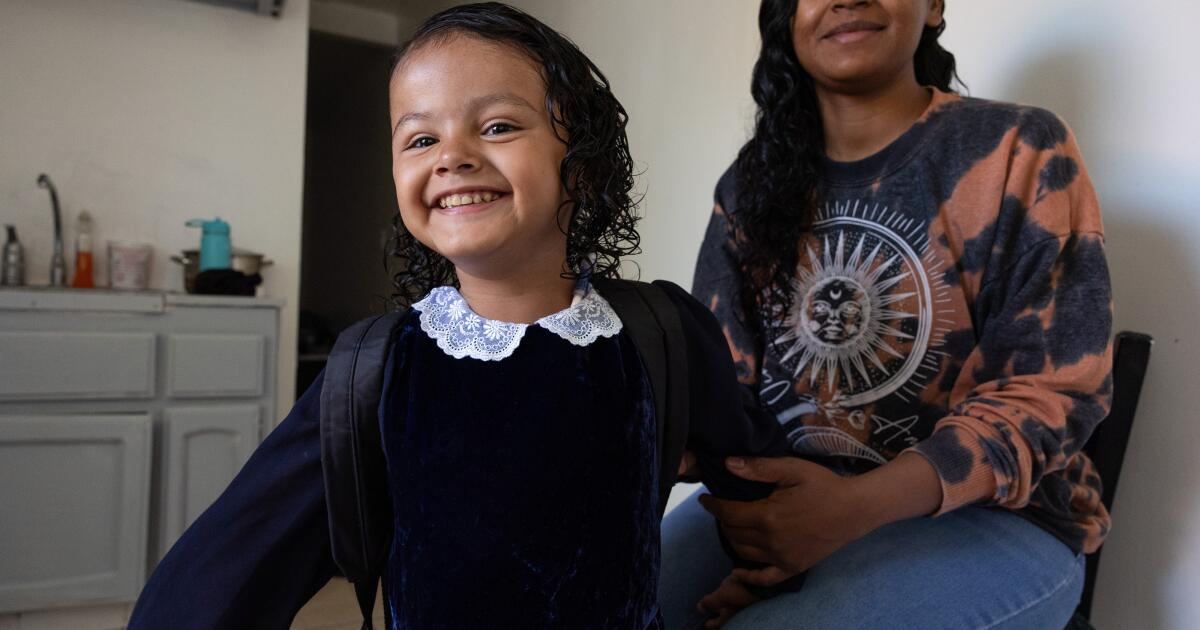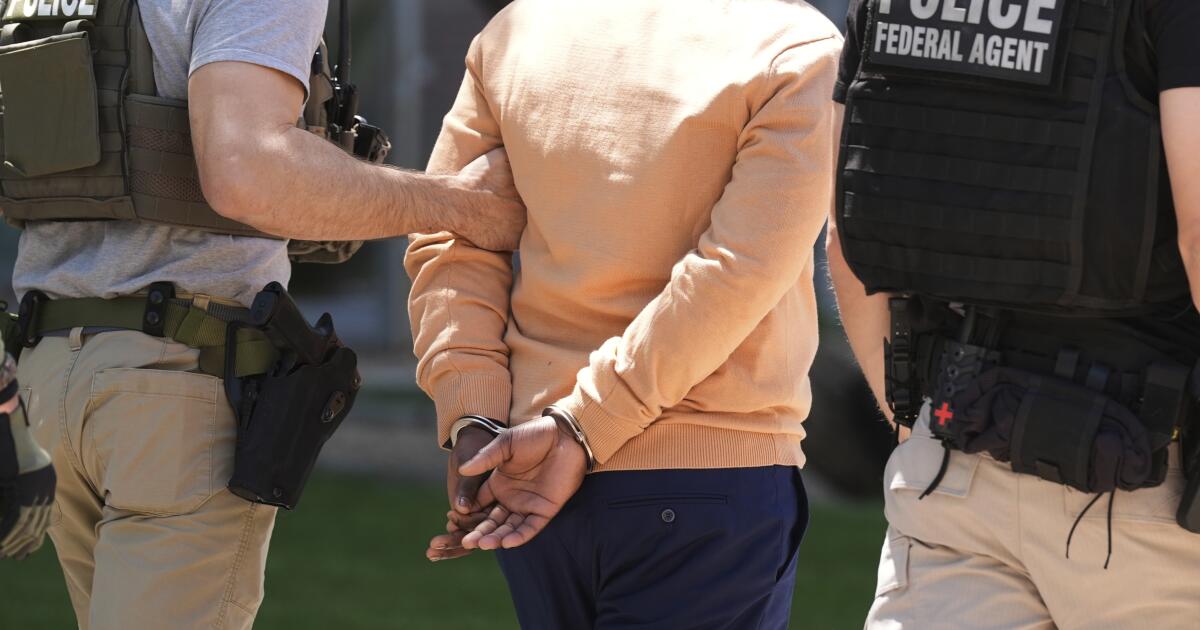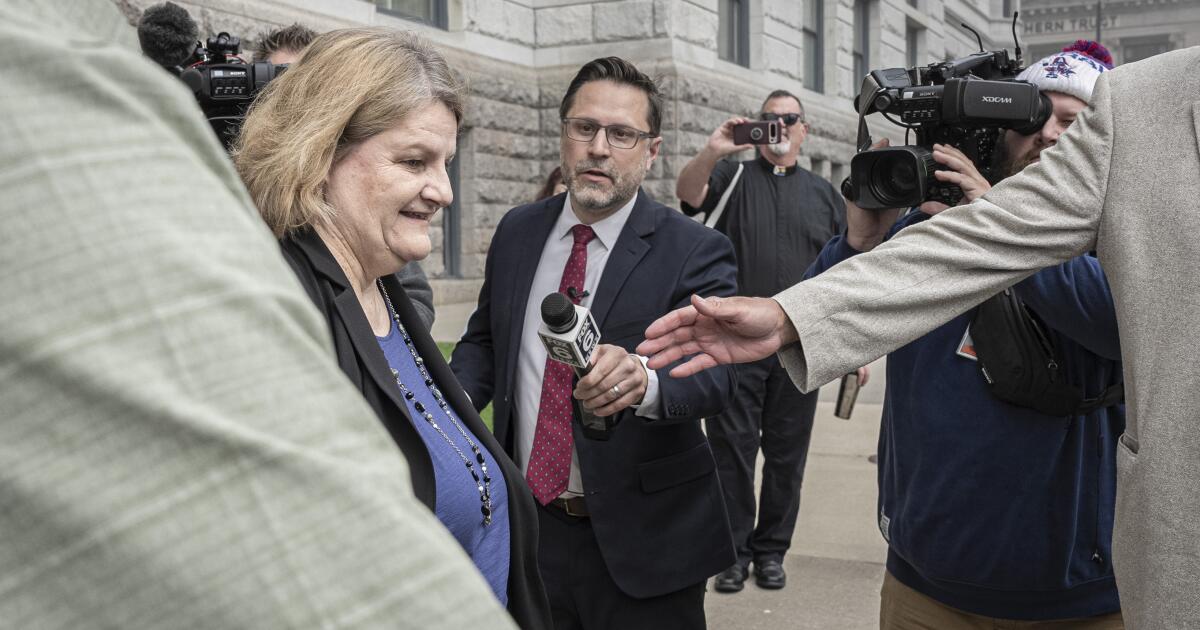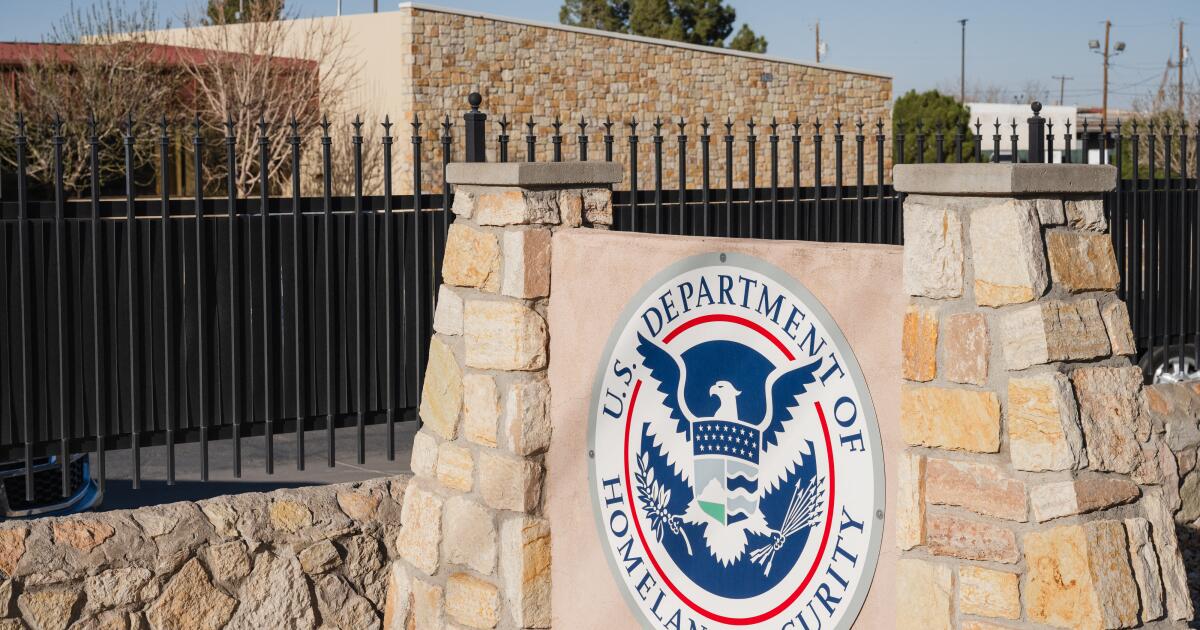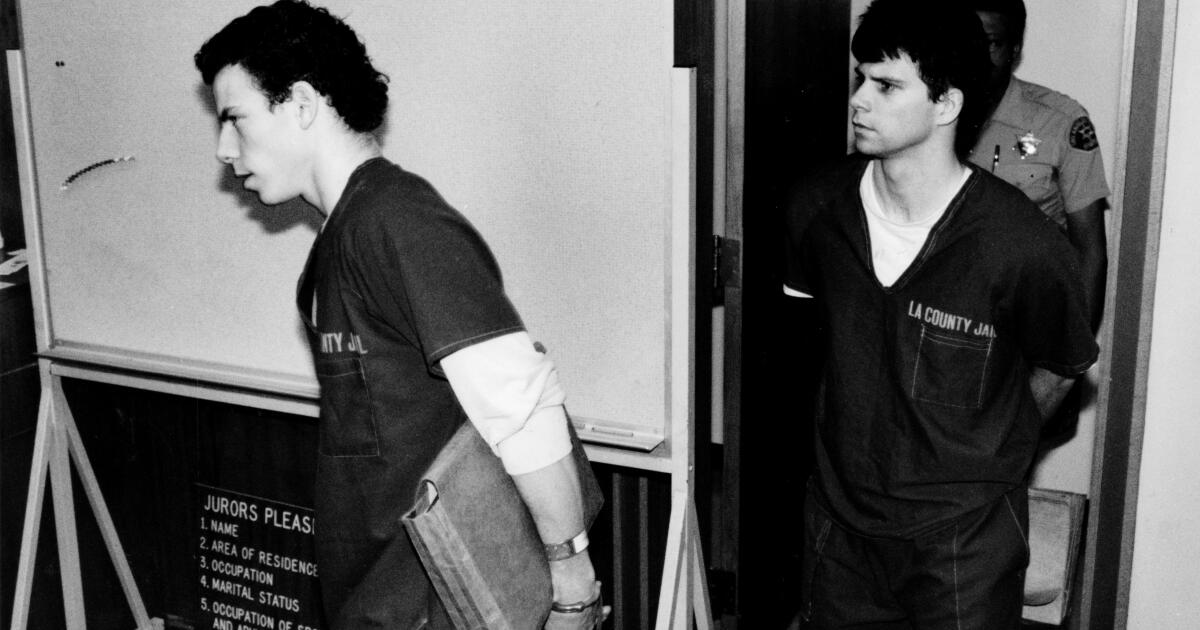Democrats urge DHS to reinstate legal status of girl facing deportation
WASHINGTON — Lawmakers this week condemned the Trump administration’s termination of humanitarian protections that have left a 4-year-old girl who is receiving critical medical treatment in Los Angeles vulnerable to deportation and death.
On Tuesday, The Times published the story of S.G.V., who has short bowel syndrome — a rare condition that prevents her body from completely absorbing nutrients. She and her parents received temporary permission to enter the U.S. legally through Tijuana in 2023.
In a letter Thursday to Department of Homeland Security Secretary Kristi Noem, 38 congressional Democrats, including California Sens. Alex Padilla and Adam Schiff, urged her to reconsider the termination of the family’s legal status.
“We believe this family’s situation clearly meets the need for humanitarian aid and urge you and this Administration to reconsider its decision,” the lawmakers wrote. “It is our duty to protect the sick, vulnerable, and defenseless.”
Last month, S.G.V.’s family, who now live in Bakersfield, received notice from U.S. Citizenship and Immigration Services that their status had been terminated and that they had to leave the country immediately. Earlier this month, they applied again for humanitarian protections.
Tricia McLaughlin, assistant secretary in the Department of Homeland Security, said in a statement that the family is not actively in the deportation process and that their application is still being considered.
The girl’s physician, Dr. John Arsenault of Children’s Hospital Los Angeles, wrote in a letter requested by her family that any interruption in her daily nutrition system “could be fatal within a matter of days.”
The story about S.G.V. drew swift public outcry. An online fundraiser for the girl’s care had amassed nearly $26,000 as of Thursday morning.
The letter to Noem was led by Reps. Luz Rivas (D-North Hollywood) and Sydney Kamlager-Dove (D-Los Angeles). Rivas said state legislators and constituents messaged her about the family, asking what she could do to help.
While the family lives outside of Rivas’ district, which encompasses the north-central San Fernando Valley, she said it is her role as a California Democrat and a member of the Congressional Hispanic Caucus to speak up for immigrant constituents in districts where Republican representatives may not do so.
“That’s why we’re organizing as members of Congress,” Rivas said. “Without action from Secretary Noem and this administration, this little girl will die within days.”
In a post on X, Rep. Judy Chu (D-Monterey Park) called the situation “heartbreaking.” Seeking to deport the girl despite her medical condition is “cruel and inexcusable,” Chu added.
In another X post, Rep. Greg Casar (D-Texas) wrote: “Trump wants to deport a four-year-old who could die from a life-threatening medical condition if her treatment is interrupted. How does this cruelty make us a stronger nation?”
The family and their attorneys held a news conference Wednesday at the Koreatown office of the pro bono firm, Public Counsel. The lawyers explained that the equipment administered by the hospital to S.G.V. for home use is not available outside the U.S.
“If they deport us and they take away my daughter’s access to specialized medical care, she will die,” said Deysi Vargas.
Attorneys for the family noted that S.G.V. is not the only child affected in recent months by the Trump administration’s immigration policies. In an attempt to speed up arrests and deportations, they said, children are needlessly being swept up in the process.
Gina Amato Lough, directing attorney at Public Counsel, said the girl’s case “is a symbol of the recklessness of this administration’s deportation policies.”
“We’re seeing a pattern of cruelty and a violation of our most treasured rights and values,” said Amato Lough. “These are people coming to us for protection, and instead we’re sending them to die. That’s not justice, and it doesn’t make us any safer.”
